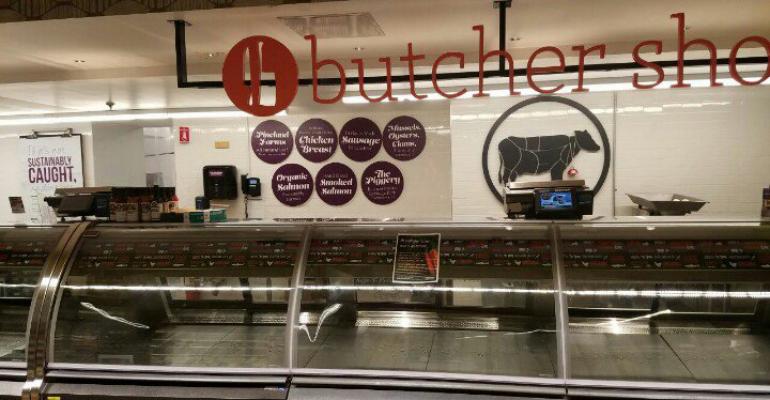The bare shelves plaguing Mrs. Green's Natural Market stores — an issue company officials had hoped to have solved already — have since worsened, leading some industry observers to conclude vendors were fearful of the company filing for bankruptcy.
As reported previously, Mrs. Green's stores ran low on replenishments late last month and abruptly closed a store in New Canaan, Conn., describing each of those events as temporary and unrelated, but providing little detail as to the cause of either event. Those events followed the closure of stores in Illinois and New Jersey the company had said were too large and far flung.
Though officials said they were hopeful of a prompt solution, SN's visit to Mrs. Green's store in in New York's Greenwich Village on Friday indicated little had changed, with nearly empty deli and dairy cases, no fresh meat or seafood, and large areas of fresh produce curtained off. A worker there said the store was not receiving deliveries from any of its vendors.

In addition, reports from Canada in recent days indicate similar supply issues are being felt at the Planet Organic food stores and Richtree restaurants also operated by Mrs. Green's parent, the Irvington, N.Y.-based Natural Markets Food Group.
Those companies are owned by Catalyst Capital Group, a Toronto-based investor. Calls to Catalyst seeking comment were not returned.
John Collins, a spokesman for Mrs. Green's, told SN Friday the company was hopeful the issue could be solved shortly but had no further comment.
Burt P. Flickinger III, managing director for New York's Strategic Resource Group, said the condition at Mrs. Green's indicated vendors were "hitting the panic button," and fearful of their payments being compromised in the event Mrs. Green's files for bankruptcy. Typically, he said, shipments slow when retailers "slow pay" or fall behind on payments.
"Even in sectors like natural and organic foods seeing double-digit growth, vendors would rather lose sales and gross profit margin on foregone sales than to get caught holding a receivable loss," Flickinger said.





